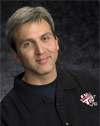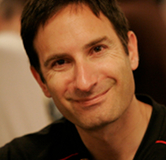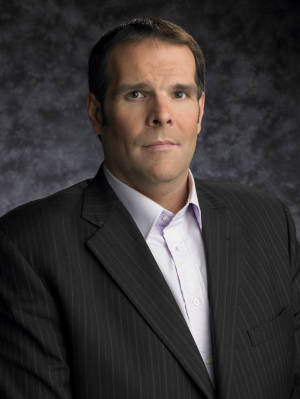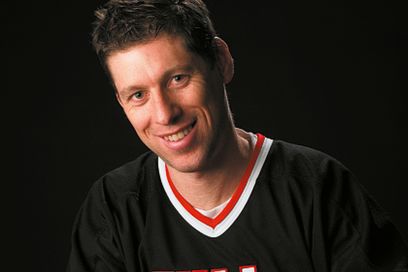
By Jay Greenspan
 Last summer, I had the chance to cover the World Series of Poker * for PokerWire.com and Full Tilt Poker. For six weeks I looked world-class players play, and during this time I learned enormously. What follows are three small lessons learned by Full Tilt Poker pros for their long days of game.
Last summer, I had the chance to cover the World Series of Poker * for PokerWire.com and Full Tilt Poker. For six weeks I looked world-class players play, and during this time I learned enormously. What follows are three small lessons learned by Full Tilt Poker pros for their long days of game.
Never rush a big decision
Even among the best poker players, some have a tendency to play too quickly "all-in! «» I call! "without having reflected at length on their decision. Obviously, a player should not waste time when there nuts. But I'm surprised at the number of times that a pro can take even in a situation where a single decision seems correct.
One of the best examples is the final hand of the first event of the WSOP *. Allen Cunningham was heads up against Scott Fischman. Fischman made the T-6-3 and Cunningham flop raise. Fischman call to then check the turn 4. Cunningham made an aggressive implementation and Fischman slyly reraisa it in all. Cunningham stopped and reflected. He had two pairs, 3 and 6 a hand that usually requires a call heads up. But it does not brusqua the decision. After a few minutes of reflection, he calla. When Fischman showed him 4-5, it was clear that Cunningham had made the right decision. The river gave an ACE and Cunningham won the pot and the bracelet.
It was amazing to see that after 13 hours of gameplay and more than 300 hands played, Cunningham did not call automatically, even if it had a strong hand. He took the time to review his hand and what it was worth at this stage. This moment of judgment Evita to Cunningham to make a big and costly mistake.
Never speak during the action
In one of his first tournaments at the WSOP *, Mike Matusow played very aggressively. He had a huge stack that he used to steal the blinds from the table. On one hand, after having restarted the button, the big blind raised it all-in.
Mike had spent most of the day talking to the players at the table. "He turned back to his opponent and asked: are you a hand?"
He replied: "It is the best hand I received for an hour."
"Your best hand for an hour," Matusow repeated? "Do you mean that you didn't ACEs. I have only K-5, but I have caller."
And Matusow was absolutely right. The big blind had a pair of 10 and Matusow had correctly determined that with an over card, it was the sides for caller implementation.
Through a banal replica, the big blind donna Matusow the information necessary to make the good game possible.
The lesson here; When you play, do not say a Word and do no favor to your opponents.
Bet your hand
The excellent players Phil Ivey, Erik Seidel, Chris Ferguson, etc. sometimes mistaken about their level of aggression. Which means that they are sometimes with hands that are underdogs (which is not favorite). But from the time I was at the WSOP *, I can't recall an opportunity missed by a pro to capitalize in a vital situation.
By contrast, some novice players tend to check - raiser or slowplayer their hands. They try to trap their opponents. But most of the time, the failure to capitalize is disastrous for them. Slowplayer for example gives free maps to their opponents who run of draws.
The best players are aggressive, and being one who put, you risk less to make errors that could cost you valuable chips.
You have all already heard that poker is a game of skills more than luck and watching the pros play, you realize the truth of this assertion. Look at the way in which they react on a table and you will better understand why these players end up more often than others in the stock exchanges. Follow their examples and you will remember surely some tips that will improve your game.
 Last summer, I had the chance to cover the World Series of Poker * for PokerWire.com and Full Tilt Poker. For six weeks I looked world-class players play, and during this time I learned enormously. What follows are three small lessons learned by Full Tilt Poker pros for their long days of game.
Last summer, I had the chance to cover the World Series of Poker * for PokerWire.com and Full Tilt Poker. For six weeks I looked world-class players play, and during this time I learned enormously. What follows are three small lessons learned by Full Tilt Poker pros for their long days of game.Never rush a big decision
Even among the best poker players, some have a tendency to play too quickly "all-in! «» I call! "without having reflected at length on their decision. Obviously, a player should not waste time when there nuts. But I'm surprised at the number of times that a pro can take even in a situation where a single decision seems correct.
One of the best examples is the final hand of the first event of the WSOP *. Allen Cunningham was heads up against Scott Fischman. Fischman made the T-6-3 and Cunningham flop raise. Fischman call to then check the turn 4. Cunningham made an aggressive implementation and Fischman slyly reraisa it in all. Cunningham stopped and reflected. He had two pairs, 3 and 6 a hand that usually requires a call heads up. But it does not brusqua the decision. After a few minutes of reflection, he calla. When Fischman showed him 4-5, it was clear that Cunningham had made the right decision. The river gave an ACE and Cunningham won the pot and the bracelet.
It was amazing to see that after 13 hours of gameplay and more than 300 hands played, Cunningham did not call automatically, even if it had a strong hand. He took the time to review his hand and what it was worth at this stage. This moment of judgment Evita to Cunningham to make a big and costly mistake.
Never speak during the action
In one of his first tournaments at the WSOP *, Mike Matusow played very aggressively. He had a huge stack that he used to steal the blinds from the table. On one hand, after having restarted the button, the big blind raised it all-in.
Mike had spent most of the day talking to the players at the table. "He turned back to his opponent and asked: are you a hand?"
He replied: "It is the best hand I received for an hour."
"Your best hand for an hour," Matusow repeated? "Do you mean that you didn't ACEs. I have only K-5, but I have caller."
And Matusow was absolutely right. The big blind had a pair of 10 and Matusow had correctly determined that with an over card, it was the sides for caller implementation.
Through a banal replica, the big blind donna Matusow the information necessary to make the good game possible.
The lesson here; When you play, do not say a Word and do no favor to your opponents.
Bet your hand
The excellent players Phil Ivey, Erik Seidel, Chris Ferguson, etc. sometimes mistaken about their level of aggression. Which means that they are sometimes with hands that are underdogs (which is not favorite). But from the time I was at the WSOP *, I can't recall an opportunity missed by a pro to capitalize in a vital situation.
By contrast, some novice players tend to check - raiser or slowplayer their hands. They try to trap their opponents. But most of the time, the failure to capitalize is disastrous for them. Slowplayer for example gives free maps to their opponents who run of draws.
The best players are aggressive, and being one who put, you risk less to make errors that could cost you valuable chips.
You have all already heard that poker is a game of skills more than luck and watching the pros play, you realize the truth of this assertion. Look at the way in which they react on a table and you will better understand why these players end up more often than others in the stock exchanges. Follow their examples and you will remember surely some tips that will improve your game.




